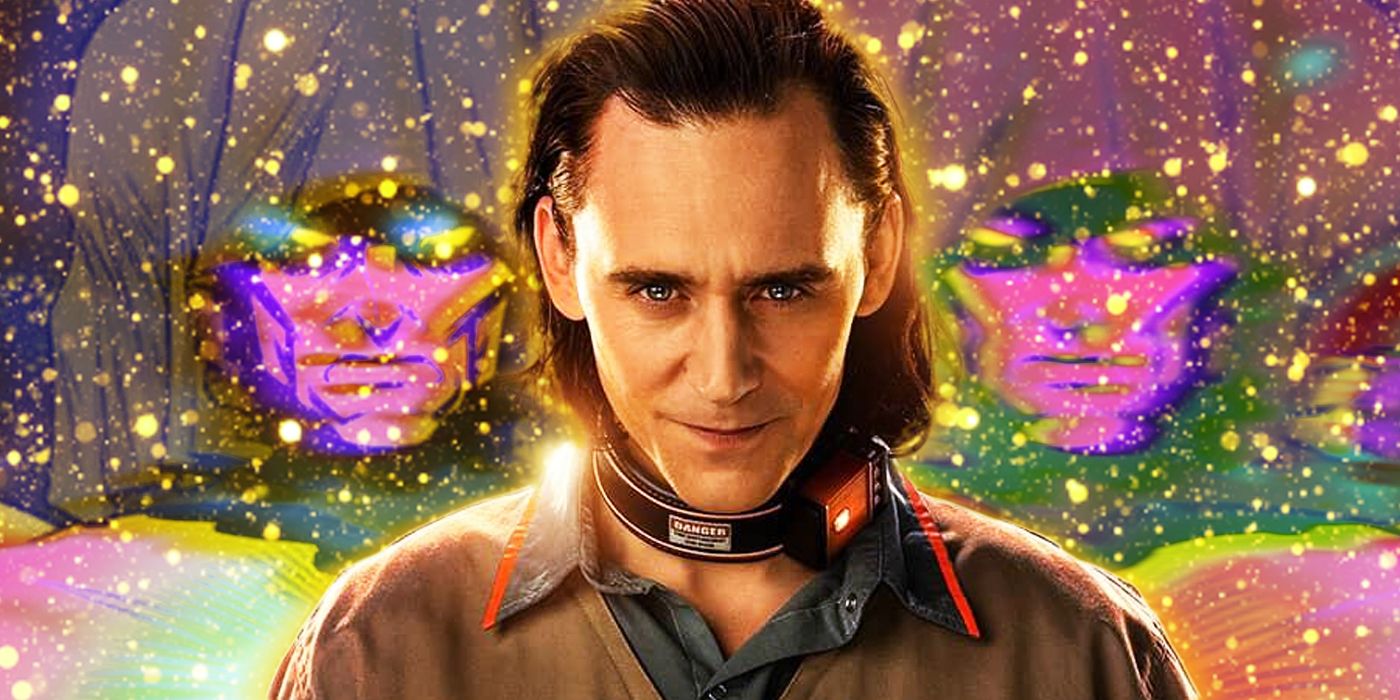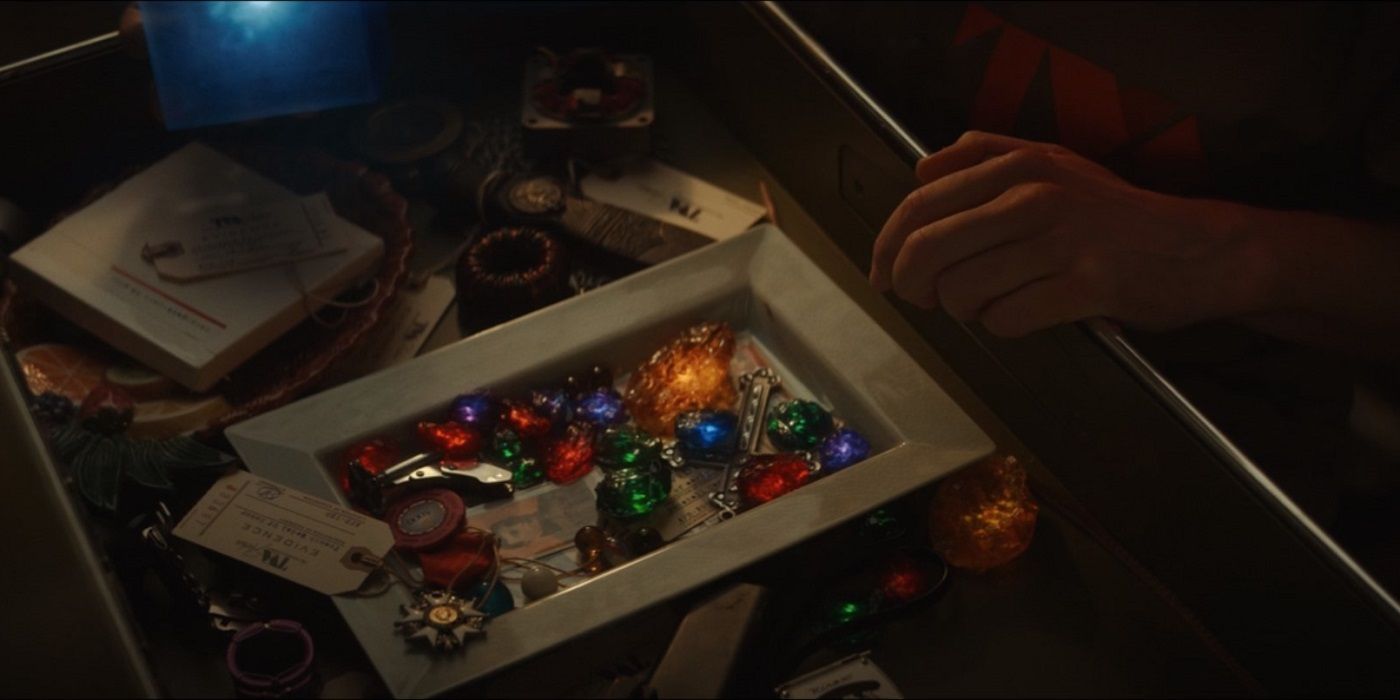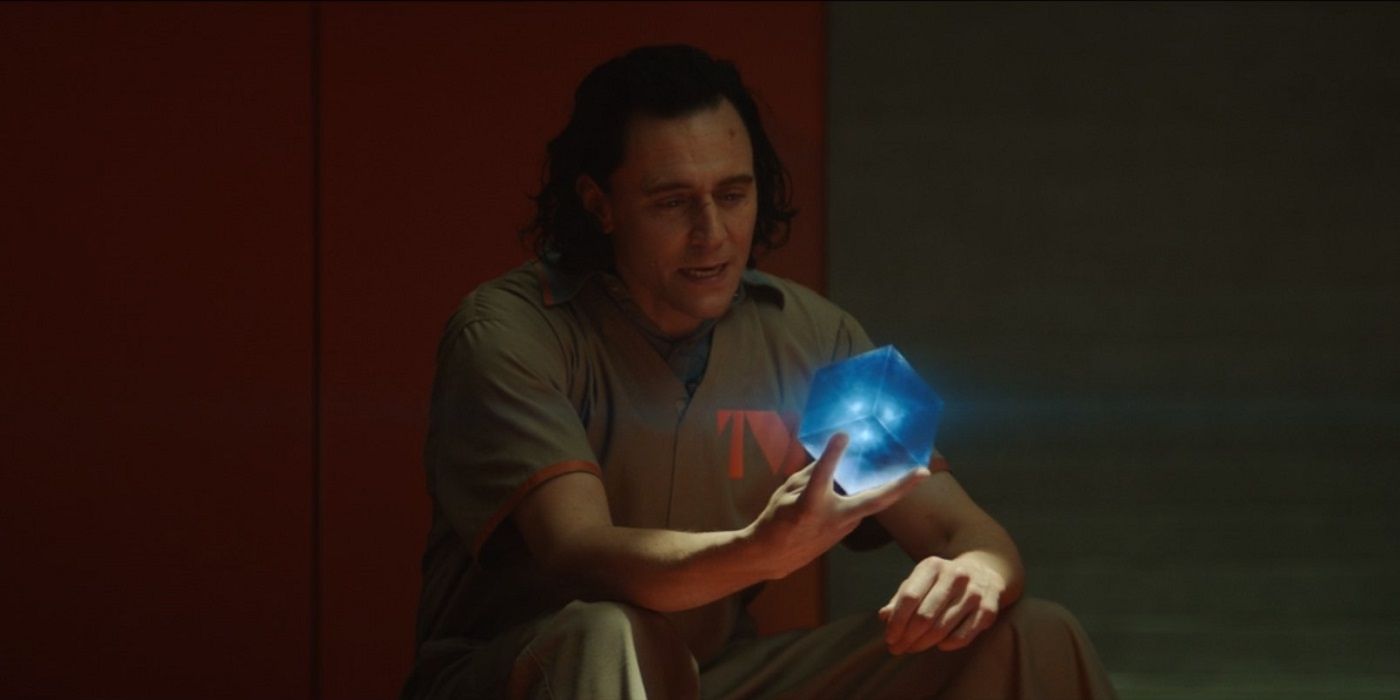WARNING: The following contains spoilers for Loki Episode 1, "Glorious Purpose," streaming now on Disney+.
The series premiere of Loki was as full of huge revelations as Marvel fans have come to expect, but the most important of them arrived deliberately as an afterthought. Loki, having escaped his TVA captors, makes his way to the Tesseract, only to find it stuffed in a drawer with a number of other Infinity Stones. The most powerful items in the Marvel Cinematic Universe were lying forgotten in a pencil-pusher's drawer in some grand cosmic office.
It’s a shattering moment for Loki, who sees his dreams of conquest and rule dissolve into existential despair. But beyond that, it suggests that the wayward god is dealing with powers on an absolutely terrifying scale. The implications for him and the MCU as a whole are profoundly unsettling, which also makes them full of narrative potential.
There are specific reasons why the Infinity Stones won’t work in the TVA, and indeed they were necessary to make the logistics of Avengers: Endgame work. 1996's DC vs. Marvel crossover comic by Peter David, Ron Marz, Claudio Castellini, Dan Jurgens, Paul Neary, Josef Rubinstein, Bill Oakley and Gregory Wright put the issue to bed by stating that the Infinity Stones are unique to each reality, and that bringing new Stones in from other realities renders them inert. Loki seems to confirm that this concept applies to the MCU with its reveal: dozens of Infinity Stones, utterly inert and literally used as paperweights by TVA drones.
It's a jarring move, but also a smart one from a storytelling standpoint. The Infinity Gauntlet was the ultimate power in the MCU, but that was finished with Endgame. Any subsequent attempt to resurrect or replay the Gauntlet’s power would feel like a cheap knock-off of the Phase Three finale. Their appearance here is the narrative equivalent of ripping the bandage off: stating clearly that the Infinity Gauntlet has served its narrative purpose and needs to be set aside in favor of whatever is coming next.
And conceptually at least, the powers dwarfing the Infinity Stones are very different. A multiverse requires exponentially more power to manipulate and control than a single universe by default, which opens the door to impossibly powerful godlike beings like the Beyonders and the Living Tribunal. It gives the MCU somewhere distinct to go while firmly putting Thanos and the events of Endgame behind it.
Naturally, that tactic can only play out so many times, and constantly upping the power levels runs a high risk of overkill. Yet that same tendency can also pay huge dividends, at least in the short term. For example, the MCU is exceptionally good at putting its characters behind the eight ball. No matter how powerful they are, they always seem to have the odds stacked against them. Loki is an Asgardian god who has wielded the power of the Infinity Stones himself. By rendering that power a joke, it sets him back on his heels and forces him to think on his feet, which is precisely the moments where he’s at his best.
As far as Loki goes, it’s perfect. The power jump arises as a part of good world-building and a fundamental shift in focus, which is vital for moving the MCU into the future. It gives the character a properly daunting challenge to overcome and builds on the events of Endgame without feeling beholden to it. Not coincidentally, it also potentially pits Loki against beings who could have killed Thanos as easily as Thanos killed him, implying that the Mad Titan may have been the least of the MCU’s worries.
Loki stars Tom Hiddleston as Loki, Owen Wilson as Mobius M. Mobius, Gugu Mbatha-Raw as Ravonna Lexus Renslayer, Wunmi Mosaku as Hunter B-15 and Sophia Di Martino, Richard E. Grant, Sasha Lane and Eugene Cordero. The series premiered June 9 on Disney+.



